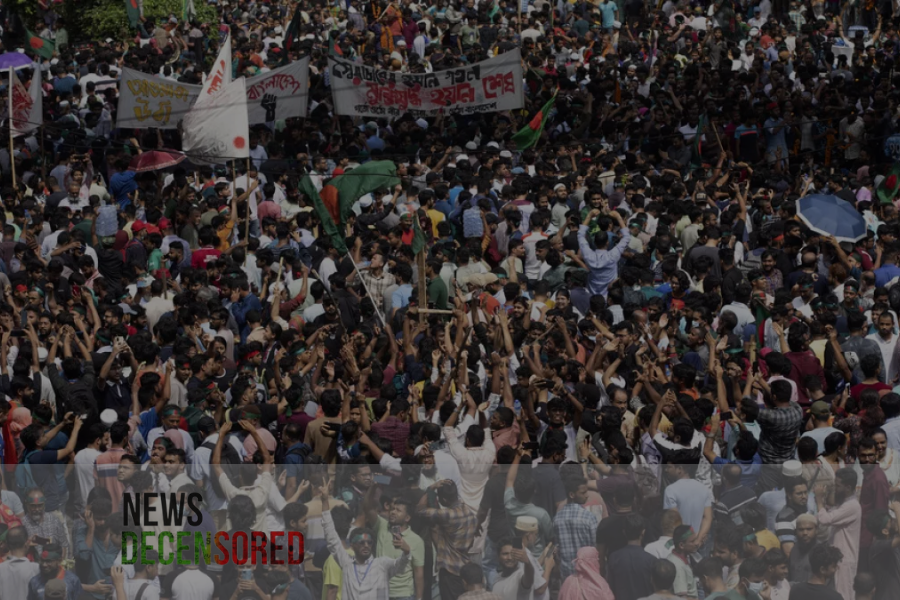Grabbing the headlines for the last few weeks, Bangladeshi Prime Minister Sheikh Hasina has finally resigned and escaped from Bangladesh. Thus, during the Monday resignation, students demanded the formation of a new interim government and offered the Alfred Nobel prize laureate Muhammad Yunus the post of chief adviser.
It was learnt that Awami League president Sheikh Hasina, 76, went to India on a military helicopter with her sister. Bangladesh newspapers reported that she flew to London on Monday night. Her departure was related to her 15-year service with the company, during which conditions deteriorated, and people demanded her dismissal.
The preceding catalyst for the protests can be identified as a student action that sought to end the quota system in government employment. Protests soon turned ugly, and activists clashed with the police as well as pro-government demonstrators; the situation degenerated to worse on Monday, with at least 56 people confirmed dead. Protesters entered the official prime minister’s residence and shouted slogans while making victory signs.
After the resignation, thousands of Bangladeshis poured out on the streets of Dhaka to celebrate a memorable event in Bangladeshi politics. People, including vegetable vendors, provoked agitations to attack important security houses and even the PM’s residence, the Ganabhaban.
Amid the anarchy, the ruling General Waker-Uz-Zaman of Bangladesh’s army wanted the soldiers and militiamen to calm down and vowed to investigate the bloodshed taking place in Bangladesh over the last month, which has claimed almost 300 lives.
Major General Waker Uz Zaman said he will be available for a meeting with the leaders of protests and sit-ins on Tuesday morning regarding the formation of the interim government as proposed. The proposal of Muhammad Yunus, the Nobel Peace Prize winner who is highly appreciated for his initiatives in microfinancing as the chief consultant, has attracted much attention and can point to the new trend in the country.
At first, the demonstrators protested the government’s response and corruption, but later, their protests transformed into calls for Hasina’s resignation. This came after her acrimonious fourth successive election win in January, which was condemned and the opposition boycotted, accompanied by vote rigging and other vices.
Bangladesh’s most influential female politician is Sheikh Hasina, the daughter of Bangladesh’s pride, Sheikh Mujibur Rahman. Nevertheless, the public has experienced her administration as unpopular and hostile to democracy, with her foes calling her authoritarian and threatening democracy. Her father was assassinated in 1975 when there was a military coup; this killed almost her entire family, including her mother and siblings, but she and her sister survived, and this was a turning point in her political life.
In this case, Sheikh Hasina’s resignation and the call for an interim government show the strong desire of the Bangladeshi people at this country’s current crossroads. Such a plan to engage Muhammad Yunus could elude a new political age, but the direction is still unclear. As the nation struggles to cope with this change, the global community observes how Bangladesh will manage the situation at this crossroads of the country’s history.















